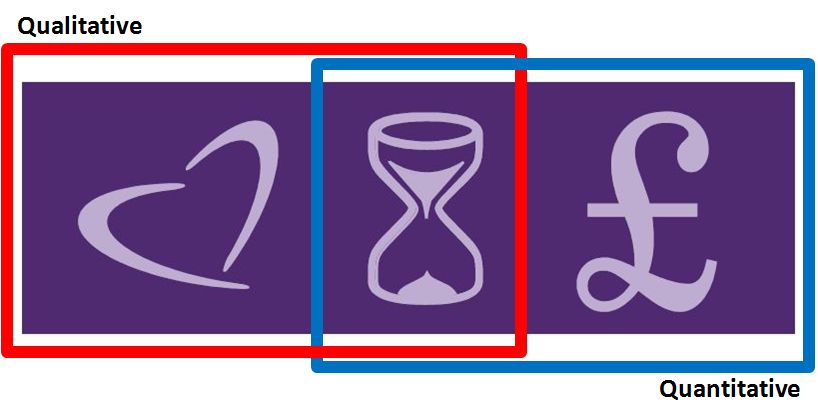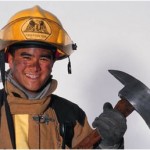 Times are hard. Severe austerity measures are being imposed to plug the hole in the national finances. Cuts are being made. But will these cuts cure the problem or kill the patient? How would we know before it is too late? Is there an alternative to sticking the fiscal knife in and hoping we don’t damage a vital part of the system? Is a single bold slash or a series of planned incisions a better strategy? How deep, how far and how fast is it safe to cut? The answer to these questions is “we don’t know” – or rather that we find it very hard to predict with confidence what will happen. The reason for this is that we are dealing with a complex system of interdependent parts that connect to each other through causal links; some links are accelerators, some are brakes, some work faster and some slower. Our caveman brains were not designed to solve this sort of predicting-the-future-behaviour-of-a-complex-system problem: our brains evolved to spot potential danger quickly and to manage a network of social relationships. So to our caveman way of thinking complex systems behave in counter-intuitive ways. However, all physical systems are constrained by the Laws of Nature – so if we don’t understand how they behave then the limitation is with the caveman wetware between our ears.
Times are hard. Severe austerity measures are being imposed to plug the hole in the national finances. Cuts are being made. But will these cuts cure the problem or kill the patient? How would we know before it is too late? Is there an alternative to sticking the fiscal knife in and hoping we don’t damage a vital part of the system? Is a single bold slash or a series of planned incisions a better strategy? How deep, how far and how fast is it safe to cut? The answer to these questions is “we don’t know” – or rather that we find it very hard to predict with confidence what will happen. The reason for this is that we are dealing with a complex system of interdependent parts that connect to each other through causal links; some links are accelerators, some are brakes, some work faster and some slower. Our caveman brains were not designed to solve this sort of predicting-the-future-behaviour-of-a-complex-system problem: our brains evolved to spot potential danger quickly and to manage a network of social relationships. So to our caveman way of thinking complex systems behave in counter-intuitive ways. However, all physical systems are constrained by the Laws of Nature – so if we don’t understand how they behave then the limitation is with the caveman wetware between our ears.
We do have an amazing skill though – we have the ability to develop tools that extend our limited biological capabilites. We have mastered technology – in particular the technology of data and information. We have learned how to recode and record our expereince and our understanding so that each generation can build on the knowledge of the previous ones. The tricky problems we are facing are ones that we have never encountered before so we have to learn as we go.
So our current problem of understanding the dynamics of our economic and social system is this: we cannot do this unconsciously and intuitively in our heads. Instead we have developed tools that can extend our predictive capability. Our challenge is to learn how to use these tools – how to wield the fiscal scalpel so that it is quick, safe and effective. We need to excise the cancer of waste while preserving our vital social and economic structures and processes. We need the best tools available – diagnostic tools, decision tools, treatment planning tools, and progress monitoring tools. These tools exist – we just need to learn to use them.
A perfect example of this is the reining in of public spending and the impact of cutting social service budgets. One thing that these budgets provide are services that some people need to maintain independent living in the community. Very often elderly people are only just coping and even a minor illness can be enough to tip them over the edge and into hospital – where they can get stuck because to discharge them safely requires extra social support – support that if provided earlier might have prevented a hospital admission. So boldly slashing the social care budget will not magically excise the waste – it means that there will be less social support capacity and patients will get stuck in the hospital part of the health and social care system. This is not good for them – or anyone else. Hospitals are not hotels and getting stuck in one is not a holiday! Hospitals are for people who are very ill – and if the hospital is full of not-so-ill people who are stuck then we have an even bigger problem – because the very ill people get even more ill – and then they need even more resources to get them well again. Some do not make it. A bold slash in just one part of the health and social care system can, unintentionally, bring the whole health and social care system crashing down.
Fortunately there is a way to avoid this – and it is counter-intuitive – otherwise we would have done it already. And because it is counter-intuitive I cannot just explain it – the only way to understand it is to discover and demonstrate it to ourselves. And in the process of learning to master the tools we need we will make a lot of errors. Clearly, we do not want to impose those errors on the real system – so we need something to practice with that is not the real system yet behaves realistically enough to allow us to develop our skills. That something is a system simulation. To experience an example of a healthcare system simulation and to play the game please follow the link: click here to play the game






